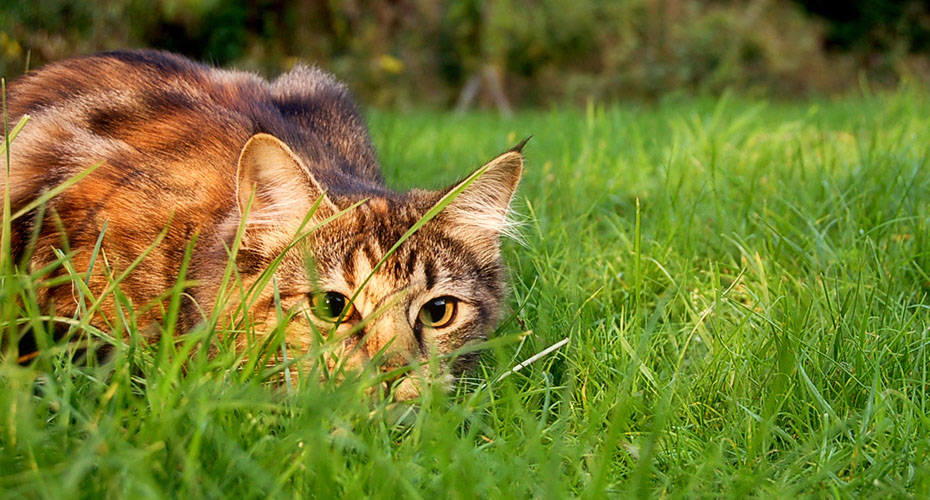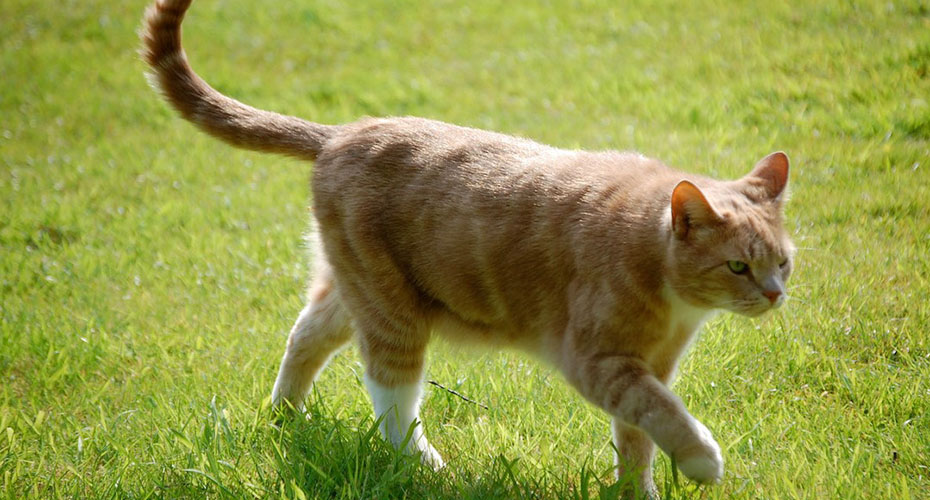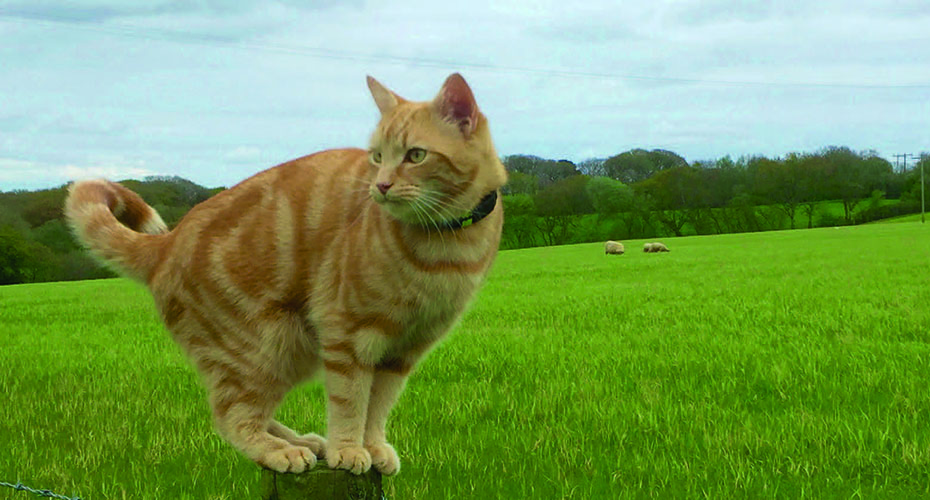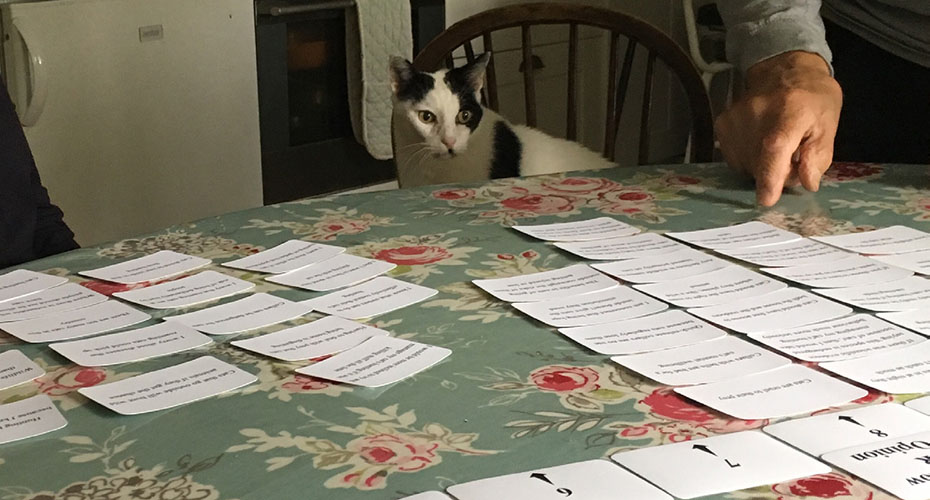Cats, Cat Owners & Wildlife
Domestic cats have rich historical and cultural associations with human societies, and today they are second only to dogs as the UK’s most popular pet. They provide millions of people with companionship and are also kept for their skills as pest-controllers. However, the same hunting prowess that makes cats helpful allies can also be a problem, and owned, ‘outdoor’ cats kill many wild animals every year. Many cat owners are uncomfortable with their cats’ predatory behaviour, and some conservation and wildlife organisations are concerned that a large cat population may be contributing to national declines of birds and small mammals. Although previous, national-scale studies have produced large estimates of numbers killed, these numbers do not equate with population- level impacts on birds or mammals, nor do they take into account the cat’s role as a pest controller. Furthermore, these findings have had little influence on policy, practice, or public attitudes, and campaigns aiming to convince people that their pets’ hunting behaviour may be problematic are generally not well-received.
Our proposition is that the relationship between domestic cats, people, and wildlife is a complex, shared problem. Cat owners are a key interest group who will be central to any effort to minimise cat predation on vulnerable wildlife, but their views are often overlooked.
We’re interested in tackling this issue through engagement and collaboration with cat owners. This project aims to work with cat owners to identify effective, practical means of reducing cat predation on wildlife, without compromising (and potentially enhancing) cat welfare.
The project has both social and ecological research components. This means that we are both (a) tracking cat movements and hunting activity to identify factors and management options that influence hunting behaviour, and (b) investigating cat owner’s views on hunting and roaming behaviour and management techniques.
Crowley, S. L., Cecchetti, M., & McDonald, R. A. (2019). Hunting behaviour in domestic cats: An exploratory study of risk and responsibility among cat owners. People and Nature, 1(1), 18-30.
Crowley, S. L., Cecchetti, M., & McDonald, R. A. (2020). Diverse perspectives of cat owners indicate barriers to and opportunities for managing cat predation of wildlife. Frontiers in Ecology and the Environment, 18(10), 544-549.
Crowley, S. L., Cecchetti, M., & McDonald, R. A. (2020). Our wild companions: Domestic cats in the Anthropocene. Trends in ecology & evolution, 35(6), 477-483.
Cecchetti, M., Crowley, S. L., & McDonald, R. A. (2020). Drivers and facilitators of hunting behaviour in domestic cats and options for management. Mammal Review.
Cecchetti, M., Crowley, S. L., Goodwin, C. E., & McDonald, R. A. (2021). Provision of High Meat Content Food and Object Play Reduce Predation of Wild Animals by Domestic Cats Felis catus. Current Biology, 31(5), 1107-1111.
Cecchetti, M., Crowley, S. L., Goodwin, C. E., Cole, H., McDonald, J., Bearhop, S., & McDonald, R. A. (2021). Contributions of wild and provisioned foods to the diets of domestic cats that depredate wild animals. Ecosphere, 12(9), e03737.
, , , , & (2021). Spatial behavior of domestic cats and the effects of outdoor access restrictions and interventions to reduce predation of wildlife. Conservation Science and Practice, e597.
Crowley, S. L., DeGrange, L., Matheson, D., & McDonald, R. A. (2022). Comparing conservation and animal welfare professionals' perspectives on domestic cat management. Biological Conservation, 272, 109659.
Cecchetti, M., Crowley, S. L., McDonald, J., & McDonald, R. A. (2022). Owner-ascribed personality profiles distinguish domestic cats that capture and bring home wild animal prey. Applied Animal Behaviour Science, 105774.
Psychology Today: Do Domestic Cats Have a Right To Roam?
The Packet: University of Exeter looking for ways to stop pet cats hunting wildlife
Bournemouth Daily Echo: Research team needs cat owners to take part in study aimed at reducing wildlife killed by hunting.
Katzenworld Blog: Wanted: Cat Owners Whose Pets Walk on The Wild Side.
Phys.org: Researchers identify five types of cat owner.
Neuroscience news: Researchers Identify Five Types of Cat Owner.
IFLS: These Are The Five Different Types Of Cat Owner, According To A New Study.
Science Daily: Researchers identify five types of cat owner.
Independent: Researchers identify five types of cat owner.
Yahoo news: Cat owners fall into five categories from 'conscientious caretaker' to 'freedom defenders'.
CNN: Cat owners fall in one of five categories, researchers say. Which one are you?
VNonline: Study identifies five cat owner types.
BGR: There are five types of cat owners, according to science.
MRCVS online: Study identifies five cat owner types.
iNewspaper: From conscientious caretaker to freedom defenders, there are five different types of cat owner, study suggests.
University of Exeter Press Release: Researchers identify five types of cat owner.
Phys.org: Play and meaty food reduce hunting by cats.
New Scientist: Feeding your cat a very meaty diet may mean it kills less wildlife.
ITV news: Cats' killer instinct tamed by daily play and meat in food, new study finds.
Science Magazine: Want to curb your kitty’s killer instinct? Add meat and playtime, study suggests.
CNN: How to stop your cat from killing so much wildlife.
ExBulletin: Play with it and feed your cat to stop him from hunting so much, the study says.
International Cat Care: New study finds play is a successful, non-restrictive way to limit hunting by cats.
The Guardian: Meaty meals and play stop cats killing wildlife, study finds.
The Guardian: The hidden world of cats: what our feline friends are doing when we’re not looking.
University of Exeter Press Release: Cats' whiskers reveal felines favour free lunch (featured on BBC World Service, The Daily Mail, Press and Journal and Science Daily.)
This research was also the one of the 5 most popular scientific papers of March 2021 in the Nature Index journals.
The Guardian: Is it time to end cats’ right to roam?
Professor Robbie McDonald (University of Exeter)
Dr Sarah Crowley (University of Exeter)
Martina Cecchetti (University of Exeter)
Dr John Bradshaw (Chair)
Keith Cowieson (Songbird Survival)
Dr Sarah Ellis (International Cat Care)
Zoe Greatorex MRCVS (Veterinary Surgeon)
Dr Adam Grogan / Sam Watson / Alice Potter (RSPCA)
Dr Andy Sparkes MRCVS (Feline Veterinary Specialist)




